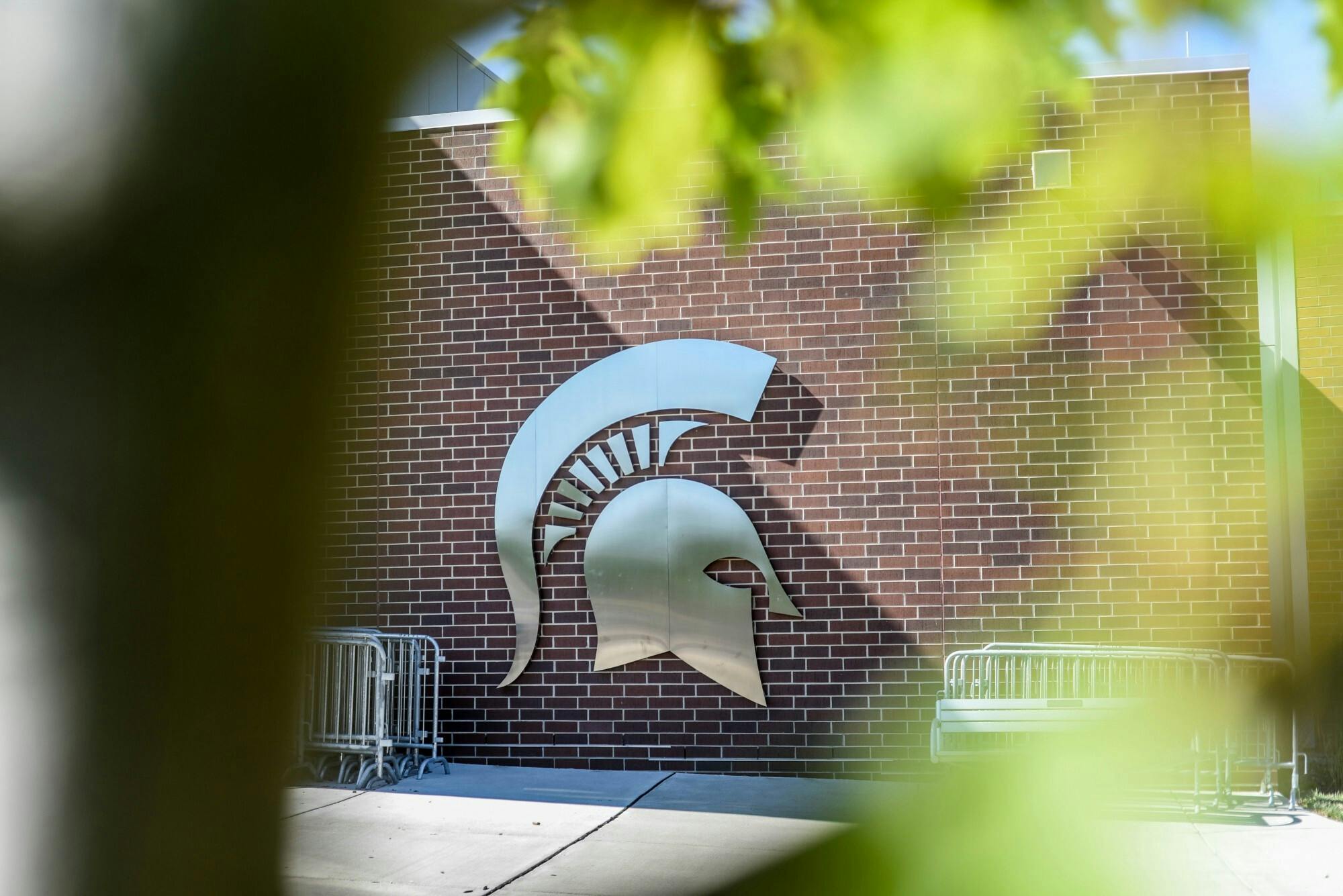When Anthony Williams Jr. resigned from his Michigan State University deanship in February over an incident of sexual misconduct, it wasn’t the first time he faced accusations. It was just the first time they stuck.
Two years ago, while in his previous role as Grand Valley State University’s Director of Student Conduct and Conflict Resolution, Williams was being investigated by the university's Title IX office for allegedly sexually assaulting a student.
But that investigation never finished, because Williams resigned and accepted the job as MSU’s dean of students before it could. In his new role, informally known as the "chief conduct officer," he would oversee student behavior and sit on the committee advising MSU on Title IX.
When he made the move, GVSU had a policy of closing investigations into people who left the university. MSU’s background checks only cover Title IX cases that reach a final resolution.
That allowed Williams to get the new job without a chance that the investigation would be completed and without MSU knowing it had ever been opened.
The circumstances – a university employee known to have engaged in misconduct moving from one place to another, sheltering the employee from consequences and the institutions from public scrutiny – is common. It even has a name: pass the harasser.
In some cases – like Williams’, where records show he first applied to work at MSU before the victim contacted GVSU’s Title IX office – moving around appears to be a lucky chance to avert consequences.
But for others, moving around can be a calculated tactic.
“We advise people when there’s an allegation to get out and start looking for a new school before there is a finding,” Joshua Engel, a lawyer who represents faculty members and students accused of harassment, told The Chronicle of Higher Education in 2019.
The loophole
In the years since Williams’ exit, GVSU changed their policies to encourage the Title IX office to continue investigations even if the subject leaves the university.
That brings GVSU in line with MSU, which also attempts to continue investigations regardless of resignation.
“We don't want to incentivize resignation as a motive for getting rid of a Title IX investigation,” MSU deputy spokesperson Dan Olsen said.
But even with complete investigations, the pass-the-harasser problem remains, because the results aren’t proactively shared with the accused's next employer.
Olsen said MSU can't share that information in part because of legal and privacy concerns, but mostly because MSU simply doesn't keep track of where people go after leaving the university.
A GVSU spokesperson would not say if the university has a method of sharing findings.
MSU and GVSU do add the finalized investigations to the employee’s personnel file, which can be accessed by their new institution though public records requests.
That process recently played out in the case of former MSU professor and associate business dean Charles Hadlock, who resigned in summer 2022 while under investigation for sexually harassing and assaulting students at an MSU event.
Hadlock took a new job at the University of Pittsburgh before the investigation concluded.
When it did, months into his work at Pitt, he was found to have violated the university’s Title IX and Relationship Violence and Sexual Misconduct policies. MSU followed its policy, adding the results to his file but not proactively notifying Pitt of what it had found.
So, Pitt was only made aware of Hadlock’s conduct through reports from Michigan news outlets in January, which were primarily writing about Hadlock because of his case’s connection to the controversial resignation of former MSU business dean Sanjay Gupta.
In April, Pitt spokesperson Nick France told The State News that after the news reports surfaced, Pitt began reviewing “the circumstances surrounding (Hadlock’s) recruitment and ultimate hire by the university.” Regardless, he remains employed at Pitt today.
Williams’ GVSU misconduct
The case file for Williams’ GVSU Title IX incident doesn’t say much.
April 27th, 2021: the Title IX office opens an investigation into Williams, with the victim reporting “multiple inappropriate statements and actions” that amounted to sexual assault.
July 16th, 2021: the case is closed.

But, according to two people with intimate knowledge of the matter, Williams’ case is the one explored in a 2022 independent investigation of GVSU’s Title IX office. The circumstances and dates of each event in that case also match those of Williams’.
According to that report – which was conducted by global law firm Husch Blackwell – the threat of Williams resigning during the investigation to avoid consequences was a point of much discussion by investigators.
He had applied to be MSU’s dean of students just before the victim reported abuse, and had made it through multiple rounds of interviews as the investigators worked on his case, according to the MSU HR file documenting the search process.
In meetings throughout the investigatory process, they debated how they could finish before Williams left, or if that would make any difference in his MSU employment, according to Husch Blackwell's report.
In the end, the investigation reached a finalized report, the second to last step in GVSU’s Title IX process. GVSU did not release the contents of that report in response to a records request by The State News.
The next step would be a hearing where Williams, the victim and witnesses would be questioned by a panel charged with making a final judgment and potentially issuing discipline.
But Williams received an offer from MSU and resigned before that could happen, so his case was closed.
Williams at MSU
His new role – earning him a salary of $135,000, which is $60,000 more than his GVSU job – was described in application materials as the university’s “chief conduct officer,” charged with ensuring “a transformative and restorative approach to accountability.”
Outside of his day-to-day work ensuring students behaved with integrity, he would serve on the MSU committee overseeing Title IX.
About a year into the job, in November 2022, Williams attended a National Association of Student Personnel Administrators’ conference in Chicago.
There, a fellow delegate reported he made unwanted advances in a hotel bar before being removed by security, which prompted his resignation from MSU.
The resignation agreement included three months of transitional pay – which he would not have been entitled to had he been terminated – and a condition of confidentiality.
In an email to staff explaining his departure, Williams said he was a finalist in a closed search at another institution.
In addition to the privacy provided by the resignation agreement, the part of his personnel file detailing the incident in Chicago was initially exempted from disclosure.
It was eventually released after a Freedom of Information Act appeal from The State News, making the reason for his resignation available to requesters or institutions looking to hire Williams going forward.
“The public’s interest in disclosure outweighs any privacy interest by the employee,” MSU’s response, authored by Interim President Teresa Woodruff, said.
It’s unclear where or if Williams is currently employed.
He did not return calls seeking comment. He has also deleted his social media profiles.
Fallout at GVSU
Back at GVSU, Theresa Rowland, the lead investigator on Williams’ case, had been in constant conflict with her boss, Vice President for Inclusion & Equity Jesse Bernal, over how to handle Williams' case.
Many of their disagreements centered around Bernal repeatedly asking Rowland to have an outside investigator conduct the investigation into Williams, according to Husch Blackwell’s report.
When asked to explain his insistence by Husch Blackwell’s investigators, Bernal said that he thought Rowland was fully capable of properly investigating the case, but worried about accusations of bias, as the Title IX office had “longstanding tensions” with Williams and his student conduct department.
Bernal had heard those concerns from Williams himself, who called Bernal the day he found out about the investigation to question Rowland’s motives, according to Husch Blackwell’s report.
So Rowland – who saw the communication between Bernal and Williams as improper interference into her case – pushed back on Bernal's request to turn the case over to an outside investigator. She argued it was too late, as she had already met with the victim and began the investigation.
Eventually, Bernal amended his demand, asking that she have an outside investigator review her work after she was done.
But Rowland was worried about Williams’ looming resignation, and thought the review would slow the investigation. So, she filed her final report without any review, against Bernal’s instructions.
Despite her time-saving maneuver, Williams left GVSU before that report could be taken to a hearing.
A month later, Rowland was placed on an indefinite suspension. She resigned shortly after, and entered into a non-disclosure agreement with GVSU.
Outraged by the confusion and secrecy surrounding Rowland’s exit, nearly every staffer in the Title IX office resigned.
In their letters of resignation, they alleged toxic leadership and broad “evisceration of the Title IX office by (Bernal),” according to copies obtained by The State News.
Kathleen Blumreich, one of the last to resign, wrote that “the Title IX Office is now empty … the university has lost dedicated individuals whose expertise, ethical conduct, and professionalism made (it) a model for other institutions of higher education.”
The lack of staff and inconsistent communication surrounding Rowland’s departure left GVSU unequipped to investigate cases and caused it to be technically out of compliance with the federal Title IX statute from Aug. 19, 2021, to Sept. 6, 2021, Husch Blackwell found.
GVSU’s faculty senate formed a task force to examine the issue, and by October 2021, GVSU’s faculty and staff were informed that the president had retained Husch Blackwell to investigate the matter and create the report which details the investigative process behind Williams’ case.
After the report’s release, Bernal, who remains GVSU’s top Title IX administrator, agreed to a series of reforms, including policy revisions to clearly define conflicts of interest and regular outside reviews of the Title IX office. The first of those reviews occurred in Winter 2023.







